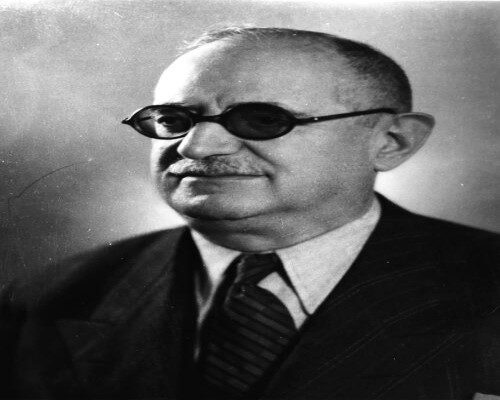Renda Turkeye: A Legacy of Influence and Controversy in the Modern Turkish Republic

The name “Renda Turkeye” might not be widely recognized by many, but it carries significant weight in the annals of Turkish history. The Renda family, particularly Abdülhalik Renda, has played an influential role in shaping the modern Turkish Republic. This article delves into the history and legacy of the Renda family, focusing on their contributions to Turkey, the life and career of Abdülhalik Renda, and the controversies surrounding his actions. We will explore how the term “Renda Turkeye” has become synonymous with both influence and complexity in the socio-political landscape of Turkey.
The Renda Family of Turkey: Origins and Influence
The Renda family, though not widely known as a collective entity, has roots that trace back to the late Ottoman Empire. The family’s origins are in the region of Ioannina, a part of the Ottoman Empire, which is now modern-day Greece. The Rendas were of Albanian descent, a heritage that has influenced their identity and role in the Turkish state.
The family’s rise to prominence began with the public service of Abdülhalik Renda, who became one of the most powerful bureaucrats in the early years of the Turkish Republic. The Renda family’s story is one of adaptation and survival, navigating the tumultuous changes from the Ottoman Empire’s collapse to the establishment of the Republic of Turkey.
Abdülhalik Renda: A Controversial Figure in Turkish History
Early Life and Education
Abdülhalik Renda was born in 1881 in Ioannina. As a young man, he moved to Istanbul, where he pursued an education at the Mekteb-i Mülkiye, a prestigious institution known for producing many of the Ottoman Empire’s and later the Turkish Republic’s top bureaucrats. His education prepared him for a life in public service, which would see him rise to some of the highest offices in the land.
Political Career and Contributions
Renda’s career in public service began under the Ottoman Empire, where he held various administrative positions. However, his most significant roles came after the establishment of the Turkish Republic. Abdülhalik Renda served as the Governor of Bitlis, a position during which he became embroiled in one of the most controversial periods of his life—his involvement in the Armenian Genocide. His role as governor saw him implementing policies that led to the forced deportation and deaths of many Armenians, a dark chapter that has tainted his legacy.
After the establishment of the Republic of Turkey, Renda continued to serve in high-ranking positions. He was appointed as the Minister of Finance on multiple occasions, where he was responsible for stabilizing the fledgling republic’s economy. His expertise in financial matters was widely recognized, and he played a key role in laying the groundwork for Turkey’s modern financial system.
In 1935, Abdülhalik Renda was elected as the Speaker of the Grand National Assembly, a position he held until 1946. During his tenure, he presided over critical legislative developments that shaped the future of the Turkish state. His influence was further cemented when he briefly served as the Acting President of Turkey following Mustafa Kemal Atatürk’s death in 1938, until the election of İsmet İnönü.
The Armenian Genocide Controversy
Despite his significant contributions to the Turkish Republic, Abdülhalik Renda’s legacy is deeply marred by his involvement in the Armenian Genocide. As the Governor of Bitlis, and later Aleppo, Renda was responsible for carrying out orders that led to the mass deportation and extermination of Armenians. These actions have been widely condemned, and Renda’s role in these atrocities has been a subject of intense historical scrutiny.
The Armenian Genocide remains a contentious issue in Turkey and around the world. While Renda’s contributions to the Turkish state are acknowledged, his involvement in these dark events has led to a complex and often contradictory legacy. For some, he is a key figure in the establishment of the Turkish Republic; for others, he is a symbol of the atrocities committed during that period.
Renda Turkeye: The Modern Perception
In contemporary Turkey, the term “Renda Turkeye” is not widely recognized in public discourse, yet it symbolizes a legacy of both progress and controversy. The Renda family, particularly through Abdülhalik Renda, represents the duality of Turkey’s journey from the ashes of the Ottoman Empire to the establishment of a modern republic. This journey is marked by significant achievements in governance, finance, and state-building, but also by the unresolved issues of historical accountability.
The modern perception of Abdülhalik Renda is one of a capable and influential bureaucrat whose actions contributed significantly to the formation of the Turkish Republic. However, the darker aspects of his career, particularly his involvement in the Armenian Genocide, cannot be overlooked. This duality makes “Renda Turkeye” a term that evokes both respect and controversy.
The Legacy of the Renda Family
The legacy of the Renda family in Turkey is closely tied to Abdülhalik Renda’s life and career. While other members of the family did not achieve the same level of prominence, the family’s name is forever linked with the history of the Turkish Republic. The Renda family’s influence can be seen in the various governmental and financial reforms that took place during Abdülhalik Renda’s tenure in public service.
The family’s legacy is also a reminder of the complexities of history, where contributions to state-building and governance are often accompanied by moral and ethical questions. The Renda family, through Abdülhalik Renda, embodies the challenges of navigating these complexities in the context of a nation emerging from the ruins of an empire.
Conclusion
“Renda Turkeye” is a term that encapsulates the story of a family whose contributions to the Turkish Republic are significant but also marked by controversy. The Renda family, particularly Abdülhalik Renda, played a crucial role in shaping the modern Turkish state. Their legacy is a testament to the complexities of history, where achievements in governance and finance are shadowed by the darker chapters of the past.
As Turkey continues to evolve, the story of the Renda family serves as a reminder of the need to confront and understand the full spectrum of historical legacies. The contributions of Abdülhalik Renda to Turkey’s development are undeniable, but so too are the moral questions raised by his involvement in the Armenian Genocide. In this way, “Renda Turkeye” will remain a term that evokes both the progress and the challenges of Turkey’s modern history.



